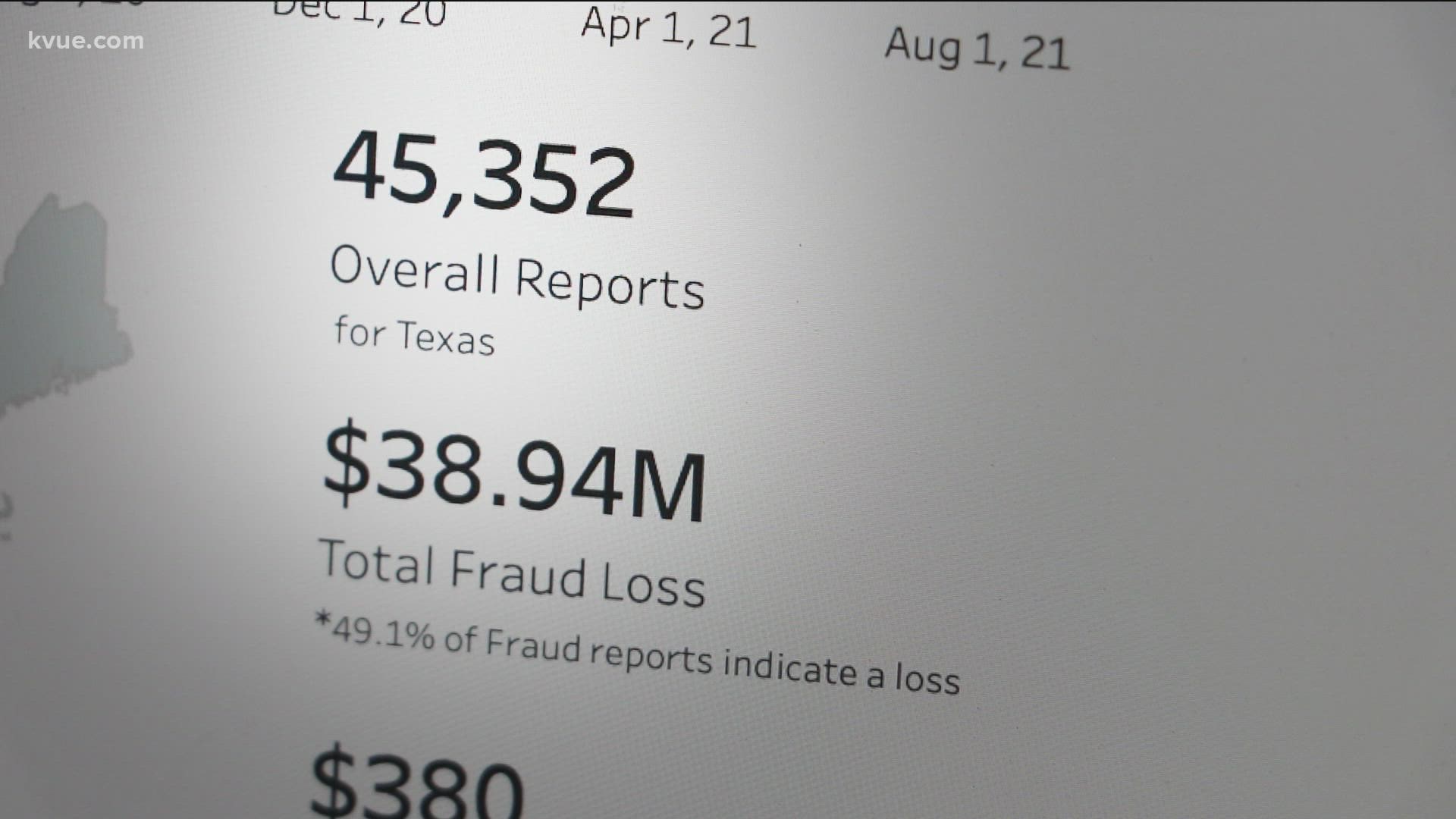AUSTIN, Texas — The Federal Trade Commission’s COVID-19 and Stimulus Reports show more than 45,352 people scammed in Texas, as of Oct. 27.
Most of the scams were related to shopping, booking vacations and personal care.
Online shopping increased over the pandemic. Tens of thousands of shoppers lost money to scams, with 3,389 in Texas.
When COVID-19 rates fell, more people wanted to travel. Most of the money stolen came from vacation and travel scams nationwide. Thieves took $81.2 million.
The Better Business Bureau’s website shows thieves setting up fake airline and vacation websites.
“We also see entities on the internet trying to impersonate our brand, create fake mobile banking apps and such that somebody installs and then you authenticate to them. We have systems that watch out for that and notify us,” Chris Sprague, security engineer at TruWest Credit Union, said.
The FTC shows most COVID-19 scam victims are those ages 30 to 39. Sprague said criminals may target employees differently than how they target the elderly.
Scams like the romance scams and tax scams, for example, are often done through phishing. Phishing spreads a wide net for thieves through things like mass emails, text messages and phone calls.
Employees may be a specific target, what Sprague calls “spear phishing.”
“Phishing is one threat. Spear phishing is the scary thing. Spear phishing is targeted phishing,” Sprague said.
Sprague said thieves will target one person by using what’s publicly available online, such as social media information that lists employment information.
Scammers may send an email from someone you think is in your company, making demands or containing links and attachments with computer viruses.
“It all depends on what you are responsible for, so, you know, it's, you know, targeting people inside of a bank inside of a credit union. You have the potential for financial gain. You may not necessarily be the end goal for them, but you may be a stepping stone,” Sprague said.
Sprague said staying safe requires attention at all times.
“Before you click on anything, I tell my folks, ‘Keep your hands off the keyboard. Keep your fingers off that mouse clicker. Review the thing.’” Sprague said.
For web and email, Sprague said to look at the email address, subject line and the body of the email. Try to spot a character missing or added in the email address. The body of the email may contain bad grammar.
The BBB’s website shows these techniques to stay safe:
“Do your research. If you come across a company you haven’t dealt with before, research it before making any purchases. Look on BBB.org for reviews and feedback from previous customers.
“Double check the URL before you enter personal and payment information. It can be easy to click on a sponsored ad or imposter website without noticing. Before you enter any sensitive information, double check that you are on the right website and that the link is secure. (Secure links start with “https://” and include a lock icon on the purchase page. Learn more at BBB.org/BBBSecure.)
“Be wary of third-party websites. Some websites appear to offer a legitimate service but are only fronts for a scam. Be suspicious of websites with no working customer service number and no physical address. Typos and grammatical errors can be indications of a scammer’s handiwork, too.
“Make online purchases with your credit card. Fraudulent charges made on a credit card can usually be disputed, whereas that might not be the case with other payment methods. Unfortunately, there is no way to get back the personal information you may have shared.”
Sprague suggests running email attachments or links through scanning software. Some online websites will offer the service for free. However, terms of service on some websites may keep your data and may use it.
For example, the terms of service for VirusTotal show:
“While you retain any ownership rights in the original material contained in the Sample, when you upload or otherwise submit a copy of the Sample, you give VirusTotal (and those we work with) a worldwide, royalty free, irrevocable and transferable licence to use, edit, host, store, reproduce, modify, create derivative works, communicate, publish, publicly perform, publicly display and distribute all content contained in the Sample.”
If you see something suspicious, report it to the FTC at ReportFraud.ftc.gov.
PEOPLE ARE ALSO READING:

